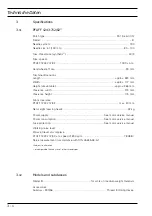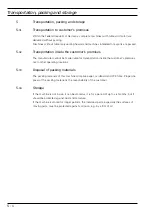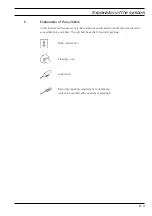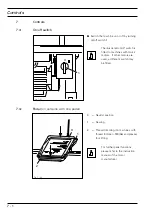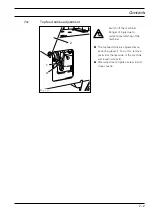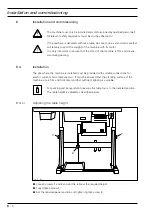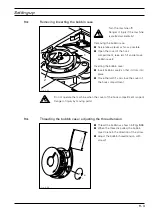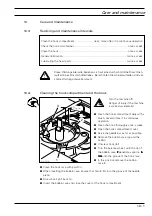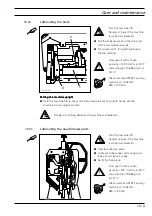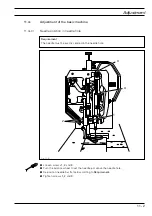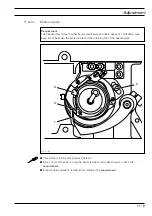
9 - 4
Setting up
9
.05
Threading needle thread/adjusting needle thread tension
Fig. 9 - 05
Switch off the machine!
Danger of injury due to unintentional starting of the machine!
●
Thread needle thread as shown in
Fig. 9-05
. Be sure to thread the needle from the left.
●
Regulate the needle thread tension by turning knurled screw
1
.
1
+
-

